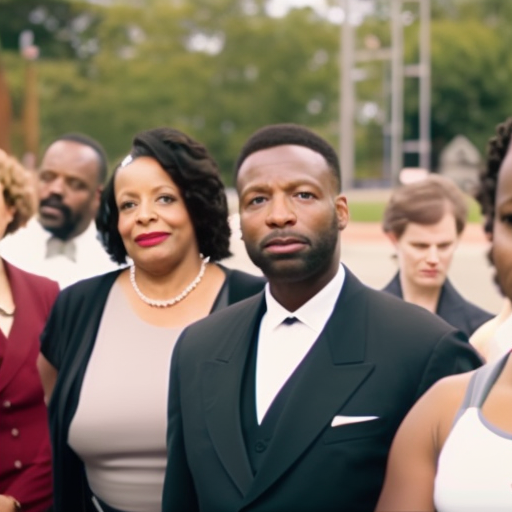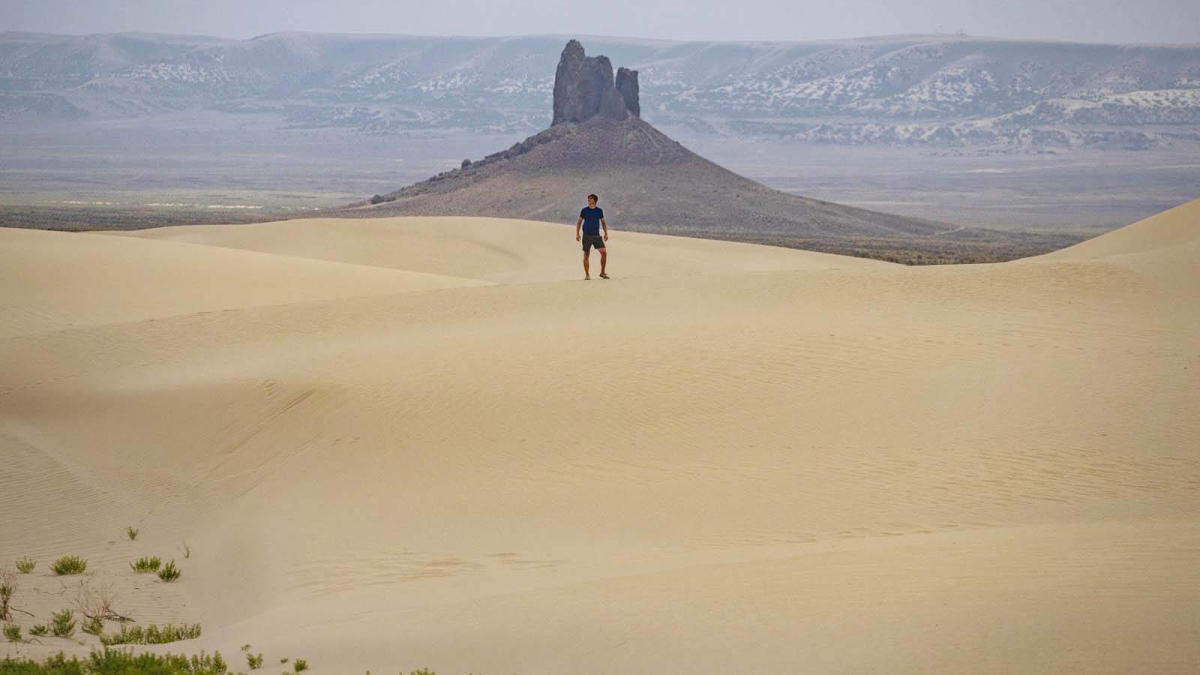
Climate Change: Adaptation Partnership Workshop

As climate change remains one of the most critical factors in the changing landscape of the globe and will likely continue to be for the foreseeable future, developing practitioner toolsets and policy frameworks for adaptation to those effects is essential.
The Impact of Climate Change
Climate change has many actual and potential impacts on people’s daily lives. The extreme heat waves, floods, storms, droughts, and wildfires wreaking havoc on communities worldwide are a wake-up call of the grave risks we already face.
Experts believe that African nations, among the least polluting countries, would be most adversely affected by climate change as they strive toward peace and security, sustainable development, and food security.
The Importance of Collaboration and Institutions
Furthermore, in today’s globally interconnected world, shared knowledge is required to guarantee the efficacy and conflict-awareness of selected adaptation pathways.
The difficulties posed by climate change require collaboration between countries and communities. Institutions are equally vital in addressing climate change. Sharing ideas, understanding practical necessities, addressing basic needs, and ethical responsibilities are the cornerstones of the adaptation mechanisms made possible by institutions.
Focusing on Africa
Under these circumstances, cutting back on emissions caused by deforestation and degradation presents a viable way to provide essential ecosystem services in Africa while also providing mitigation and adaptation strategies. Subsequently, Africa has been the primary geographical focus of these developments, making it a topic of discussion and debate among nations, international media, policymakers, academic communities, and the international policy agenda.
The Global Concern of Fragile and Conflict-Affected States
A recent report by the International Monetary Fund (IMF) reveals that “fragile and conflict-affected” states are a significant global concern that remains largely unaddressed, with potentially dire consequences that jeopardize global security and prosperity.
It is not impossible to accurately quantify the price of the resulting human misery. However, according to the report, at least $270 billion is spent annually on the international system of state failure.
Adaptation Partnership Workshop
The Adaptation Partnership is a global platform that facilitates collaboration and exchange of information among organizations and stakeholders engaged in international initiatives to enhance climate change resistance and adaptation.
The Woodrow Wilson International Center for Scholars (Wilson Center), the U.S. Department of State, the U.S. Agency for International Development (USAID), and the Institute for Security Studies (ISS), a think-tank research institute where the author worked as a senior researcher in South Africa with a branch office in Ethiopia, collaborated to facilitate two workshops under the Adaptation Partnership to explore further the relationship between peacebuilding and climate change adaptation in Africa.
First Workshop: Climate Change Adaptation and Peacebuilding
The first workshop was held Nov. 1–2, 2012, at the Wilson Center in Washington, D.C. The workshop featured in-depth consultations among a group of experts, policymakers, and practitioners, as well as public sessions featuring African experts.
The primary goal of this collaboration in Washington, D.C., was to provide an opportunity for African scholars and practitioners to identify and debate both threats and opportunities presented by climate adaptation challenges. This initial workshop allowed leading African experts to engage with more than 30 U.S.-based experts from multiple climate change adaptation and mitigation, development, natural resources, peacebuilding, security, and diplomacy communities.
Presentations and discussions focused on current research, policy interventions, and gaps in knowledge.
Follow-up Workshop in Ethiopia
Over three days, Oct. 14–16, 2013, a follow-up workshop in Ethiopia featured a greater variety of African perspectives. The workshop addressed the findings and deliberations of the Washington workshop. These two workshops identified practical and feasible ways forward for climate adaptation and peacebuilding across diverse institutions.
The workshops also helped experts identify concrete steps to support practical climate change adaptation efforts in fragile and conflict-affected countries, turning awareness into action. They built upon a detailed understanding of current policies and practices in climate adaptation, peacebuilding, and conflict-sensitive approaches in conflict-affected countries and beyond.
The outcomes of these two workshops demonstrated the need to identify gaps in the body of knowledge on conflict and climate change, develop new case studies for the emerging field, and build an online network of resources and databases for scholars and practitioners working in the field.
In addition, the need to continue educating policymakers in Africa, the United States, Europe, Asia, and beyond about the adaptation to climate change and peacebuilding, as well as the importance of the donor community in preventing, managing, and resolving conflicts arising from climate change, was highlighted and recommended.
Another concern was moving the issue from awareness-raising to developing tangible outcomes that the community of practice could incorporate into its work on both a project and policy level. This was suggested at the first workshop, and several participants were keen to see it developed further.
Arranging international workshops with UN-Habitat, on such topics as soft risk management tools and energy efficiency tools for mainstream security, was highly recommended. Training U.S. diplomats and delegates involved in African security and climate change adaptation programs was also suggested.
The need to disseminate information widely for all end users, including climate change curriculum at primary, secondary, and college levels, was strongly advised. Engaging stakeholders and end users separately and together will strengthen the success of the community of practice.
After a fruitful and interactive session, participants were ready to delve deeper into the specific tools and frameworks for conflict-sensitive programming and think about what that would look like for climate change adaptation policy and programs.
Addressing Climate Change for Global Security
Countries that have pledged to reduce their emissions to levels that will keep global warming within 1.5 degrees Celsius account for more than 67% of the world’s GDP.
President Biden pledged to work with Congress to quadruple U.S. support for developing countries—and enhance financing for adaptation efforts sixfold—by the end of 2024. In addition, he signed a historic piece of legislation that included the largest-ever climate commitment in U.S. history—$269 billion to support the global development of sustainable energy technology.
According to
SDGs, Targets, and Indicators
-
SDG 13: Climate Action
- Target 13.1: Strengthen resilience and adaptive capacity to climate-related hazards and natural disasters
- Target 13.2: Integrate climate change measures into national policies, strategies, and planning
- Target 13.3: Improve education, awareness-raising, and capacity on climate change mitigation, adaptation, impact reduction, and early warning
- Target 13.A: Implement the commitment undertaken by developed-country parties to the United Nations Framework Convention on Climate Change to a goal of mobilizing jointly $100 billion annually by 2020 from all sources to address the needs of developing countries in the context of meaningful mitigation actions and transparency on implementation and fully operationalize the Green Climate Fund through its capitalization as soon as possible
- Target 13.B: Promote mechanisms for raising capacity for effective climate change-related planning and management in least developed countries and small island developing states, including focusing on women, youth, and local and marginalized communities
The article discusses the impacts of climate change and the need for adaptation strategies. It highlights the importance of collaboration between countries and institutions in addressing climate change. The article also mentions the need to cut back on emissions caused by deforestation and degradation as a viable strategy for providing ecosystem services in Africa. These issues align with SDG 13, which aims to take urgent action to combat climate change and its impacts.
-
SDG 16: Peace, Justice, and Strong Institutions
- Target 16.7: Ensure responsive, inclusive, participatory, and representative decision-making at all levels
- Target 16.A: Strengthen relevant national institutions, including through international cooperation, for building capacity at all levels, in particular in developing countries, to prevent violence and combat terrorism and crime
- Target 16.B: Promote and enforce non-discriminatory laws and policies for sustainable development
The article emphasizes the need for collaboration between countries and institutions in addressing climate change and peacebuilding efforts. It discusses the workshops held under the Adaptation Partnership to explore the relationship between peacebuilding and climate change adaptation in Africa. These issues align with SDG 16, which aims to promote peaceful and inclusive societies for sustainable development, provide access to justice for all, and build effective, accountable, and inclusive institutions at all levels.
| SDGs | Targets | Indicators |
|---|---|---|
| SDG 13: Climate Action |
|
No specific indicators mentioned in the article. |
| SDG 16: Peace, Justice, and Strong Institutions |
|
No specific indicators mentioned in the article. |
Behold! This splendid article springs forth from the wellspring of knowledge, shaped by a wondrous proprietary AI technology that delved into a vast ocean of data, illuminating the path towards the Sustainable Development Goals. Remember that all rights are reserved by SDG Investors LLC, empowering us to champion progress together.
Source: fresnoalliance.com

Join us, as fellow seekers of change, on a transformative journey at https://sdgtalks.ai/welcome, where you can become a member and actively contribute to shaping a brighter future.






